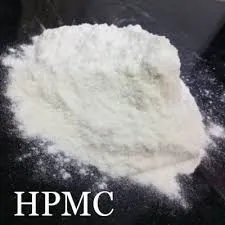
Dec . 06, 2024 20:13 Back to list
hydroxyethyl cellulose hec
Hydroxyethyl Cellulose (HEC) An Overview
Hydroxyethyl cellulose (HEC) is a non-ionic, water-soluble polymer derived from cellulose, a natural biopolymer found in the cell walls of plants. HEC is widely used in various industries, including pharmaceuticals, food, cosmetics, and construction, due to its unique properties such as thickening, film-forming, and stabilizing capabilities.
Chemical Structure and Properties
HEC is produced through the etherification of cellulose, where ethylene oxide is added to cellulose under alkaline conditions. This reaction introduces hydroxyethyl groups into the cellulose structure, enhancing its solubility in water. The degree of substitution, which refers to the average number of hydroxyethyl groups per glucose unit in cellulose, influences the properties of the final product. Higher degrees of substitution typically lead to better solubility and viscosity in water.
One of the key characteristics of HEC is its ability to dissolve in cold water and form a viscous gel. This property makes it an excellent thickener, allowing it to be used in a variety of applications. Additionally, HEC is chemically stable and resistant to heat, which further expands its utility across different formulations.
Applications of Hydroxyethyl Cellulose
1. Pharmaceuticals In the pharmaceutical industry, HEC is used as a viscosity-increasing agent in oral formulations, topical gels, and suspensions. It helps maintain the uniform distribution of active ingredients, enabling consistent dosing and improved stability of liquid formulations. HEC is also employed in the formulation of controlled-release tablets, where it regulates the release rate of the active substance.
2. Cosmetics The cosmetic industry relies on HEC for its thickening and emulsifying properties. It is commonly found in lotions, creams, shampoos, and other personal care products where it enhances the texture and stability of emulsions. HEC also provides a smooth feel upon application, making it a preferred ingredient in luxury skincare products.
hydroxyethyl cellulose hec

3. Food Industry HEC is recognized as a safe food additive and is used as a thickening and stabilizing agent in various food products, including sauces, dressings, and desserts. Its ability to enhance mouthfeel and improve texture has made it a valuable component in creating appealing food products.
4. Construction In the construction industry, HEC acts as a thickener for cement and mortar formulations. Its water-retention properties help prevent premature drying of these materials, thus improving workability and prolonging the setting time. This makes it particularly useful for wall applications and tiling.
5. Paints and Coatings HEC is also widely used in paints and coatings, where it functions as a thickener and stabilizer. It helps control the viscosity and flow of the paint while preventing pigment separation. This ensures a smooth application and uniform finish, essential for high-quality coatings.
Environmental and Safety Considerations
As a derivative of cellulose, HEC is considered to be biodegradable and environmentally friendly. Its non-toxic nature makes it suitable for a wide range of applications, particularly in food and personal care products. Regulatory agencies, including the FDA and the European Food Safety Authority (EFSA), have recognized HEC as a safe ingredient for use in various applications, although the specific regulations may vary by country.
Conclusion
Hydroxyethyl cellulose (HEC) plays a crucial role across multiple industries due to its versatile properties. Its unique ability to dissolve in water, create viscosity, and stabilize formulations makes it a valuable ingredient in pharmaceuticals, cosmetics, food, construction, and coatings. As industries continue to innovate and seek sustainable solutions, HEC stands out as an eco-friendly option that meets both performance and safety standards. With ongoing research and development, the applications of HEC are likely to expand further, showcasing its significance in modern formulations.
-
Versatile Hpmc Uses in Different Industries
NewsJun.19,2025
-
Redispersible Powder's Role in Enhancing Durability of Construction Products
NewsJun.19,2025
-
Hydroxyethyl Cellulose Applications Driving Green Industrial Processes
NewsJun.19,2025
-
Exploring Different Redispersible Polymer Powder
NewsJun.19,2025
-
Choosing the Right Mortar Bonding Agent
NewsJun.19,2025
-
Applications and Significance of China Hpmc in Modern Industries
NewsJun.19,2025







